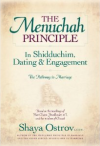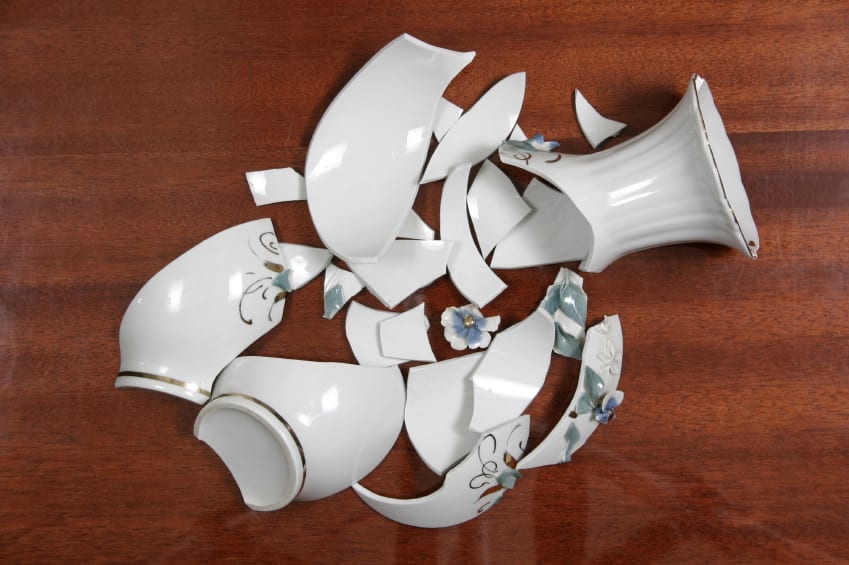When I first met Aaron, he was 37 years old, a successful lawyer but an unsuccessful dater. He was deeply committed to finding a wife and, as he grew older, placed his search before anything else in his life. Aaron had no problem meeting the right girls and even taking the relationship to a deeper level. It was when the relationship turned serious that trouble reared its head.
He would begin to feel overwhelmed by feelings of uncertainty, fear and anxiety. He would be plagued with thoughts like: “Maybe I’m being too hasty?” “How can I really be sure we’re compatible?” “Will I wake up after the wedding feeling that I made the mistake of my life?” “After dating for so long, is this the person I’ve been waiting for?” Inevitably either he or his partner would back away and once again found unable to get pastsquare one. Aaron was aware of the source of his fears and had even sought out help to resolve them, but nothing ever changed. He could never seem to get past his firewall.
When he came to see me, Aaron was dating Shira, a woman he deeply cared for and desperately did not want to lose. But he had already begun to experience the symptoms that had caused him to ruin relationships in the past.
*****
Cindy was a 24-year-old bride-to–be. Her wedding to David was just two weeks away when she came to see me. At first she was very excited about marrying David, but as the wedding drew closer Cindy found herself feeling critical of David and wondering if she was making the right decision. Compounding her doubt was pressure from her father to make the wedding while he was still able to walk her down the aisle—he had suffered a stroke a few months before, and his condition was rapidly deteriorating. He wished to attend his daughter’s wedding while he was still able.
Cindy’s confusion over David and her anxiety over her father were so severe she experienced physical symptoms that placed the wedding in jeopardy. Whenever the couple saw each other, she she suddenly became more critical of his looks. There were times when she “just had a gut instinct it was wrong.” Other times she felt like her stomach was “upside down,” and sometimes her increasing nervousness even caused her to visibly shake. In her dating career she had experienced similar reactions, but now, with her wedding just days away and the gravity of her father’s illness hovering over her, the reactions were so intense she wondered if she should cancel the wedding.
The Broader Phenomenon
Thirty years ago, someone who wasn’t married at the age of 30 was labeled as “unable to commit.” But there is such an overwhelming number of singles who are unable to simply meet, date and become engaged that this cannot just be attributed commitment phobia.
Singles who are struggling to find their life partner are a growing population. In the U.S. the singles population has proportionally doubled over the past 40 years and continues to climb. The rise of the singles population in Japan is so sharp that in 200 years the country could be devoid of its native population.
Whether you live in Tel Aviv, Hong Kong or LA, the struggle has gotten tougher for everyone. And this phenomenon is not confined to singles. The divorce rate has rocketed; even if you’ve managed to find Mr. or Mrs. Right and marry, it seems as if the prospect of staying together is dismal.
What has changed? Why has it become so much harder to get married—and stay married—than ever before?
WMD
I believe that the increasing singles population can be attributed primarily to one cause: the explosion of technology and information overload in today’s Western society. The contemporary world we live in is saturated with what a close friend of mine has coined as Weapons of Mass Distraction. There is a hardly a moment when we do not feel pulled in countless directions—by our iPhones, professional commitments, interests and hobbies, social networks, and the latest headlines.
While many of these commitments and concerns are legitimate aspects of our lives, the overall effect creates an ongoing sense of tension that can easily become impatience, agitation, anxiety, worry and insecurity. Under these conditions we never really feel settled or peaceful within ourselves, yet we have come to consider this unsettled state of mind “normal.” We tend to worry about job security, Facebook friends, maintaining our workout schedule, the sense that life is slipping by if we don’t keep up, and countless other concerns that pervade our everyday thoughts and feelings. This becomes our default and many of us are unaware that life can be any different.
How can we build meaningful relationships when we are in a continuous state of distraction and agitation? Imagine giving a child a valuable gift certificate and sending him into Toys ‘R Us with the instruction, “Just walk in, pick a toy and walk right out.” Who can fault our young consumer for being dazzled and confused, pulled in so many directions he is unable to make a decision?
It is this sense of fragmentation that causes dating couples to express these kinds of statements:
“I know we are getting married in a week, but I can’t seem to stop thinking about the last girl I went out with before we were engaged.”
She seemed to be really beautiful when we first met, but now…I am not sure.”
“I really liked him for the first couple of months, but now I just feel bored around him.”
“I think it’s time for a break. I’m just not feeling anything.”
Even if you are in a committed relationship, it is difficult to keep it meaningful with so many distractions that put the focus on everything but the relationship. In my experience, this sense of fragmentation has become the number one cause of unsuccessful dating that extends over years and even decades.
Menuchat Nefesh: The Key to Relationships that Last
My career of counseling both married and dating couples has spanned over three decades, yet it is only over the past five years that I have come to appreciate the power of Menuchat Hanefesh. Menuchat Hanefesh is a state of mind that empowers us to develop relationships that are deeply meaningful and fulfilling.
Though Menuchat Hanefesh can be literally translated as a “tranquil soul,” no single word or concept can possibly capture the complexity and depth of its meaning. When we cultivate Menuchat Hanefesh in our lives, we are learning to achieve a state of mind that is focused, clear, calm, decisive and very secure. Essentially it is the opposite of fragmentation.
Menuchat Hanefesh is a state of mind where our physical, emotional and cognitive selves—including our thoughts, feelings, physiology, and behavior—all function in exquisite synchrony. The result is an elevated sense of inner tranquility, focus, security and well-being. All this is by the wise guidance of our inner core of spiritual insight and awareness—our neshamah, our soul. It is our soul that understands our deeper needs for true human closeness and our innate need to truly share life with one special person. It is the essence of who we are at our deepest experience of self and guides us to create a lifelong relationship of the heart and soul. Menuchat Hanefesh is that state of mind where we understand the true language of our soul.
As we experience an inner sense of security and equilibrium in every dimension of our self, the world of the superficial becomes transparent and ludicrous. We learn to calm our worries, soothe our agitation, slow down the racing heart and quiet the stomach in turmoil because we see what is really important.
However, even more than the sense of tranquility, we can see from our own heart into the heart of the person we are becoming closer to. King Solomon expressed this sentiment in Proverbs (27:19): “As in water a face reflects a face, so the heart of man to man.” Menuchat Hanefesh is the emotional medium for the true expression and understanding that merges two lives into one. It makes the critical difference between moving forward in a relationship and building a life together or being paralyzed and stuck in the quicksand of frustration and disappointment so common in today’s ritual of unproductive dating.
 The good news is that Menuchat Hanefesh is not alien to who we are. It is part of our human DNA. It already resides within each of us; we have only to seek this optimum state of mind that our Creator has implanted in us.
The good news is that Menuchat Hanefesh is not alien to who we are. It is part of our human DNA. It already resides within each of us; we have only to seek this optimum state of mind that our Creator has implanted in us.
Here is how we do it. Here is how we improve our most important relationships.
These concepts are drawn from The Menuchah Principle in Shidduchim, Dating and Engagement. It is inspired by the teachings of Torah Sages and serves as a guide to help individuals and couples cultivate healthy, lifelong relationships. It includes practical advice and informative insight from a marital, pre-marital, and family therapist with more than 30 years of experience.
Shaya Ostrov, LCSW, is the author of The Menuchah Principle in Marriage, The Menuchah Principle in Shidduchim Dating and Engagement (Judaica Press) and The Inner Circle: Seven Gates to Marriage (Feldheim Publishers). He maintains a private practice in Far Rockaway and provides lectures and workshops in the area of relationship building and menuchat hanefesh. He can be reached at slostrov@gmail.com or through his website, menuchahprinciple.com.
The words of this author reflect his/her own opinions and do not necessarily represent the official position of the Orthodox Union.


